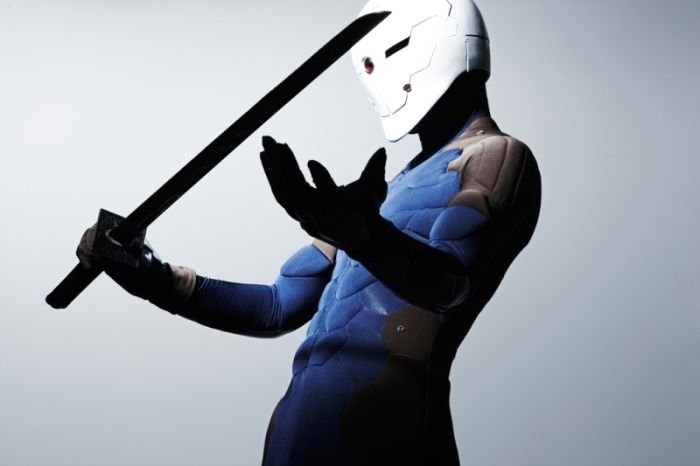|
|
Grey Fox, Metal Gear Cosplay Costume
|
The longest running theme of the series is the continued manipulation of soldiers by politicians, against which the revolutionary "Outer Heaven" ideal serves as a countermeasure. The original main villain, Big Boss, attempted to establish a purely military nation run by mercenaries solely for mercenaries. The succeeding games' villains felt they shared this ideal, coming up with new ways to create this so-called country without politics. Recently, the series has shown Big Boss in prequel games as the protagonist: a mercenary that is continually manipulated and forced through subsequent tragedies.
The games carry many implicit parallels to Nietzschean philosophy. Many of the characters struggle to find their own way of life after having discovered that the objective standards by which they lived by turned out to be a lie, a concept similar to the death of God that Nietzsche wrote about in Thus Spoke Zarathustra. The reiteration of settings, themes and plot development across different Metal Gear Solid games is a striking illustration of the Eternal recurrence, as described in The Gay Science.
"Outer Heaven" has been attempted in many forms. Big Boss attempted to build his ideal state in Southern Africa in Metal Gear and in Central Asia in Metal Gear 2: Solid Snake. Liquid Snake spoke of turning a remote Aleutian island into a sovereign mercenary state in Metal Gear Solid. Solidus attempted to free Manhattan from "the Patriots" in Metal Gear Solid 2: Sons of Liberty. In Metal Gear Solid 4: Guns of the Patriots, "Outer Heaven" is a parent company for private military companies that employs thousands of soldiers without a country.
While every attempt to secure an "Outer Heaven" immediately results in violence, the series balances the argument with politicians continually throwing mercenaries and soldiers to the wind in order to further their own agenda. In Metal Gear 2: Solid Snake, several protagonists from Metal Gear return as antagonists after being betrayed by their respective governments. In Metal Gear Solid, the game's protagonist is purposely infected with a bio weapon because he was expected to fail as well as repeatedly lied to about the nature of his mission. In Metal Gear Solid 2: Sons of Liberty, the main protagonist was raised as a child soldier and inducted into a non-existent covert ops group complete with artificial intelligence stand-ins for commanding officers and loved ones. The prequel game Metal Gear Solid 3: Snake Eater shows Big Boss and his mentor's dialogue over the subject of loyalty to a fickle and temporary government while carrying out missions that only benefit politicians at the cost of a soldier's mind, body, heart, and future. In Metal Gear Solid 4: Guns of the Patriots, Solid Snake is shown as an aged war veteran who is dropped in to the middle of a battlefield which consists of numerous PMCs which fight only for profit and have no ideologies.
|
|









